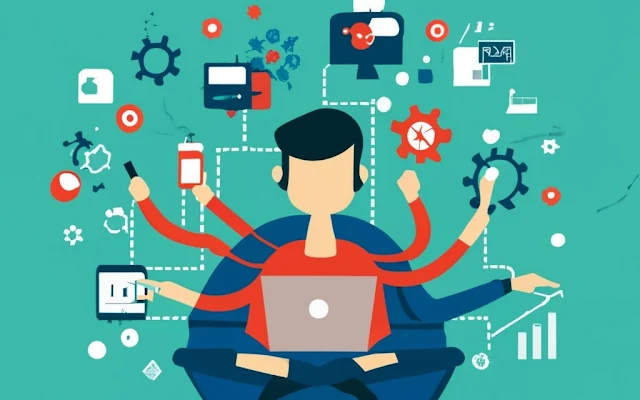Let's Embrace New Technology: An Economy That Adapts
In this digital age, we find ourselves at the forefront of an ever-evolving economic landscape that's heavily reliant on new technology. It's a transformation that has touched every aspect of our lives, from the way we work to the way we shop and communicate. This article explores the exciting world of an economy powered by new technology, delving into its impact, opportunities, and challenges.
Embracing Change: New Technology and the Modern Economy
In the past, the business world relied on traditional methods and tools to function. However, today's economy has witnessed a profound shift. The integration of new technology has not only disrupted existing systems but has also created endless possibilities.
The Technological Revolution
The rapid development of technology has revolutionized industries, making tasks more efficient and improving productivity. From automated factories to e-commerce platforms, new technology is the driving force behind these changes.
Digitalization and Its Impact
Digitalization has made information accessible at our fingertips. This has not only transformed the way we gather data but also created opportunities for businesses to cater to their customers more effectively.
A Tech-Driven Workforce
The modern workforce is no longer confined to a physical office space. Thanks to new technology, remote work has become the norm. This flexibility has redefined how companies operate and manage their employees.
Remote Work: The New Normal
The advent of telecommuting has allowed employees to work from the comfort of their homes. This shift not only promotes a work-life balance but also opens doors for global collaboration.
E-Learning and Upskilling
As industries change, new technology brings forth e-learning opportunities. Employees can easily upskill and adapt to the dynamic demands of their professions.
Shopping in the Digital Age
Gone are the days when shopping meant visiting a brick-and-mortar store. The advent of e-commerce has transformed how we purchase goods and services.
E-Commerce: The Future of Retail
Online shopping platforms have given consumers a wide array of choices, and businesses the chance to expand their reach. The convenience of shopping online has revolutionized consumer habits.
Payment Innovations
With new technology comes innovative payment solutions. From digital wallets to cryptocurrencies, the way we pay for goods and services has evolved significantly.
The Challenges of an Economy Fueled by New Technology
While the incorporation of new technology brings numerous benefits, it also presents its own set of challenges.
Cybersecurity Concerns
As our lives become increasingly digitized, the risk of cyber threats has also escalated. Protecting sensitive data is a growing concern for both individuals and organizations.
Job Disruption
Automation and artificial intelligence have the potential to displace certain job roles. Preparing the workforce for these changes is a critical challenge.
Conclusion
In conclusion, we are living in an exciting era of transition, where new technology is the key driver of economic growth. This transformation is affecting how we work, shop, and interact with the world around us. As we embrace these changes, we must also be mindful of the challenges they bring.
If you're looking to stay ahead in this tech-driven economy, make sure to stay updated and continuously adapt to new trends and technologies. The future is promising for those who are ready to embrace it.
FAQs
Q1: What is the role of new technology in the economy?
New technology plays a pivotal role in shaping the modern economy. It enhances efficiency, creates new business opportunities, and transforms traditional industries.
Q2: How can individuals prepare for the changing job landscape?
To prepare for the changing job landscape, individuals should focus on continuous learning, adaptability, and acquiring digital skills.
Q3: Are there risks associated with a tech-driven economy?
Yes, there are risks, such as cybersecurity threats and potential job disruptions due to automation. It's essential to be aware of these challenges and take necessary precautions.
Q4: How has e-commerce transformed consumer behavior?
E-commerce has revolutionized consumer behavior by providing convenience, a wide range of choices, and innovative payment methods.
Q5: What is the future of remote work?
Remote work is likely to remain a prominent feature of the workforce, offering flexibility and opportunities for global collaboration.


